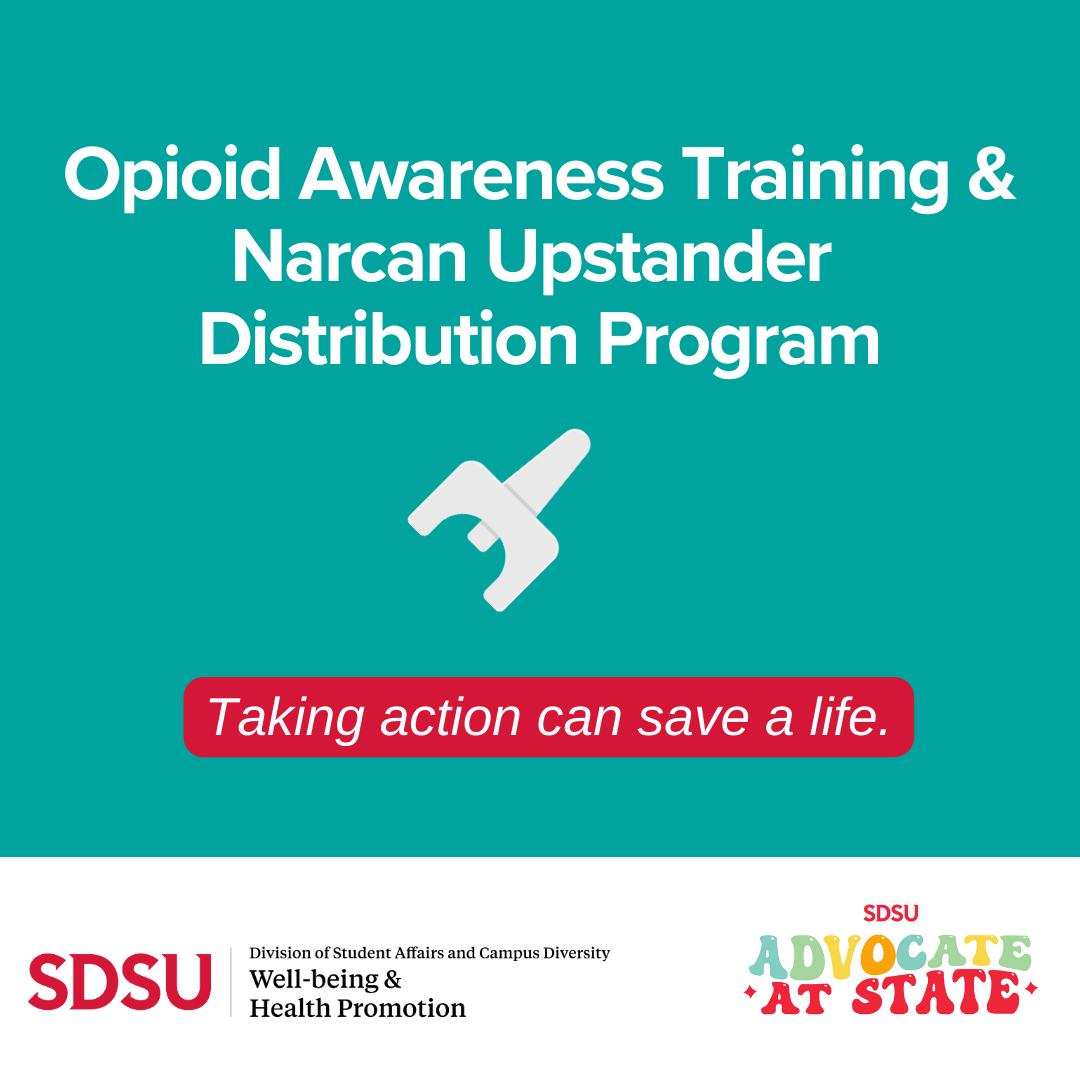Alcohol and Other Drugs (AOD)
Find resources and learn about SDSU's efforts to reduce the impact of alcohol and other drugs on the healthy learning environment of our campus.
Opioid Awareness Training & Narcan Upstander Distribution Program
Well-being & Health Promotion facilitates the SDSU Opioid Awareness Training and Narcan Upstander Distribution Program in partnership with Student Health Services and other campus partners. To receive Narcan at no cost from SDSU, students need to complete the SDSU Opioid Awareness Training. This training can be completed via the online module linked below or you can request an in-person or virtual training for yourself or for your organization, class, or other group. Email [email protected] to request a live training.
The Opioid Awareness Training module can accessed at any time here. The associated training video can be found here. This module is open to anyone to complete and we encourage all SDSU community members to complete this training in order to have this important knowledge regarding the opioid crisis and the process of administering naloxone. At the completion of the module, SDSU students may then complete the form linked above to then receive Narcan at no cost from SDSU.
Post Proposition 64 FAQs for Students
Off-campus and other resources
Learn about off-campus and other resources available to the SDSU community, including a number of drug and alcohol treatment referrals.
AOD Working Group
The group is tasked with enhancing SDSU policies, programs and initiatives designed to reduce the prevalence and resulting harm of alcohol and other drug abuse among members of the SDSU community. Learn more about the AOD Working Group by contacting James Lange.
Alcohol and other drugs presentations
The Department of Well-being & Health Promotion offers AOD presentations to student groups. Find out how to schedule an interactive and informative presentation for your student group!
RADD at SDSU
The RADD California Coalition, of which SDSU is a founding partner, is a statewide initiative to promote effective use of non-drinking designated drivers by Californians ages 21-34. College RADD promotes safe driving on numerous campuses, including SDSU. Learn more about RADD at SDSU.
Interactive Programs
SDSU offers two interactive programs that can help you to better understand — and manage — your use of alcohol and other drugs.
SDSU's online Alcohol e-CHECKUP TO GO is an interactive tool that will give you personalized feedback about:
- Your drinking and risk patterns
- Your aspirations and goals
You'll also find resources for help with alcohol-related issues in and around the SDSU community.
SDSU's online Cannabis e-CHECKUP TO GO is an interactive tool that will give you personalized feedback about:
- Your cannabis use and risk patterns
- Your aspirations and goals
You'll also find resources for help with cannabis-related issues in and around the SDSU community.
DFSCA Statement in SDSU General Catalog
See the DFSCA Statement in the SDSU General Catalog. The DFSCA (Drug-Free Schools and Communities Act) statement is found in the SDSU General Catalog (scroll to page 496).
Learn about:
- Health risks associated with alcohol and other drugs
- Prevention and treatment programs available on campus
- State laws and related campus policies, including violations and consequences
- Also see: DFSCA Biennial Reports



